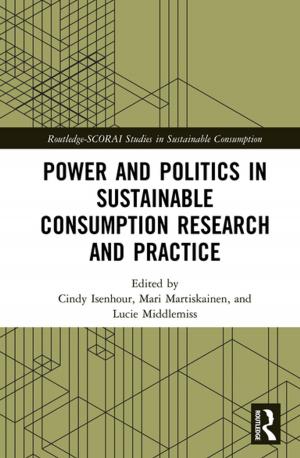On Having an Own Child
Reproductive Technologies and the Cultural Construction of Childhood
Nonfiction, Health & Well Being, Psychology, Mental Health| Author: | Karin Lesnik-Oberstein | ISBN: | 9780429916953 |
| Publisher: | Taylor and Francis | Publication: | April 24, 2018 |
| Imprint: | Routledge | Language: | English |
| Author: | Karin Lesnik-Oberstein |
| ISBN: | 9780429916953 |
| Publisher: | Taylor and Francis |
| Publication: | April 24, 2018 |
| Imprint: | Routledge |
| Language: | English |
How are ideas of genetics, 'blood', the family, and relatedness created and consumed? This is the first book ever to consider in depth why people want children, and specifically why people want children produced by reproductive technologies (such as IVF, ICSI etc). As the book demonstrates, even books ostensibly devoted to the topic of why people want children and the reasons for using reproductive technologies tend to start with the assumption that this is either simply a biological drive to reproduce, or a socially instilled desire. This book uses psychoanalysis not to provide an answer in its own right, but as an analytic tool to probe more deeply the problems of these assumptions. The idea that reproductive technologies simply supply an 'own' child is questioned in this volume in terms of asking how and why reproductive technologies are seen to create this 'ownness'. Given that it is the idea of an 'own' child that underpins and justifies the whole use of reproductive technologies, this book is a crucial and wholly original intervention in this complex and highly topical area.
How are ideas of genetics, 'blood', the family, and relatedness created and consumed? This is the first book ever to consider in depth why people want children, and specifically why people want children produced by reproductive technologies (such as IVF, ICSI etc). As the book demonstrates, even books ostensibly devoted to the topic of why people want children and the reasons for using reproductive technologies tend to start with the assumption that this is either simply a biological drive to reproduce, or a socially instilled desire. This book uses psychoanalysis not to provide an answer in its own right, but as an analytic tool to probe more deeply the problems of these assumptions. The idea that reproductive technologies simply supply an 'own' child is questioned in this volume in terms of asking how and why reproductive technologies are seen to create this 'ownness'. Given that it is the idea of an 'own' child that underpins and justifies the whole use of reproductive technologies, this book is a crucial and wholly original intervention in this complex and highly topical area.















